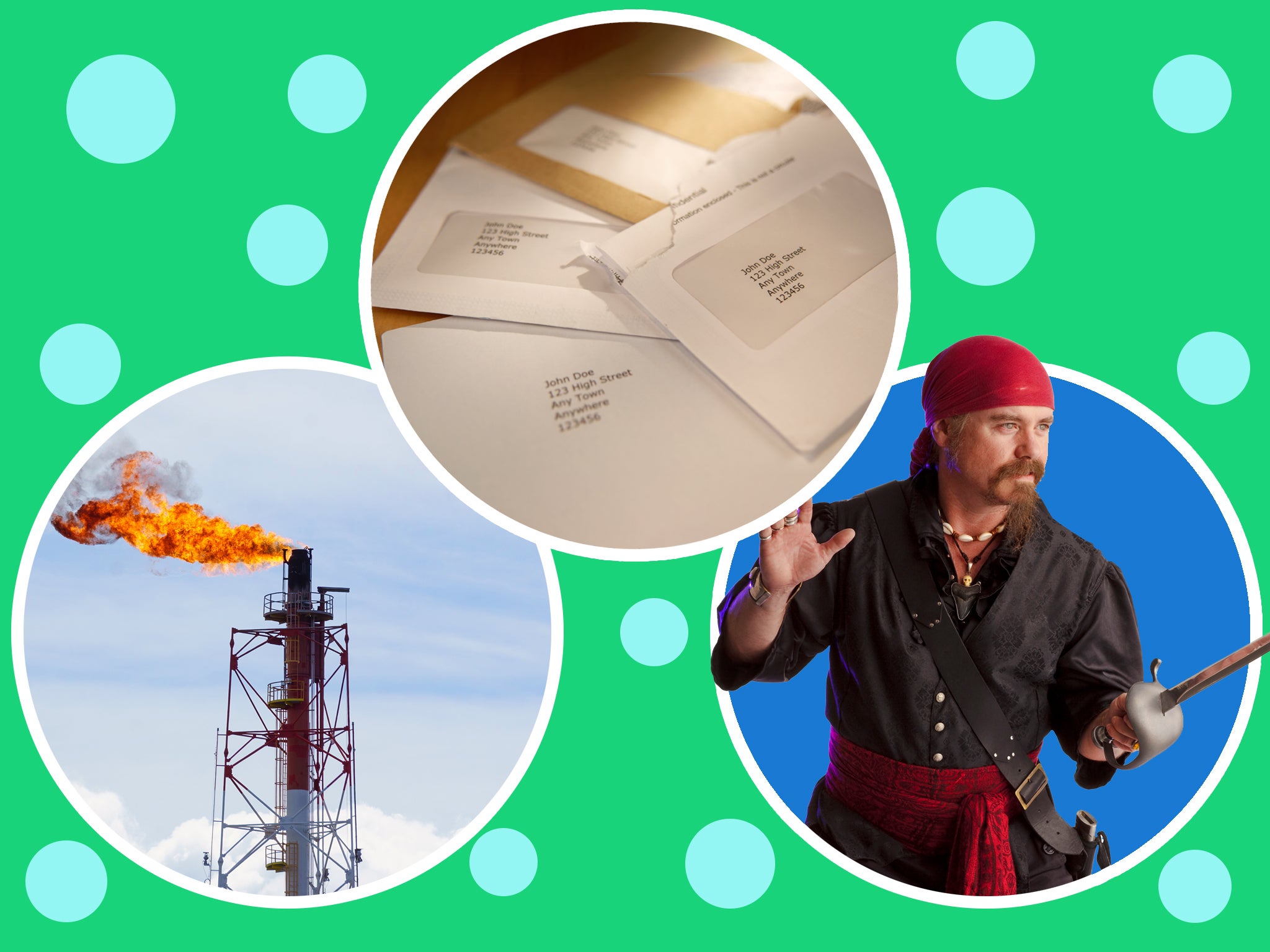It’ll all come out in the greenwash
The business of unsustainable post and why we’re still funding the arsonists in a world on fire both pose solvable dilemmas for Kate Hughes


Can someone talk me through the little windows in your average business envelope? I seem to have spent the last week painstakingly peeling them away from the paper remains so as not to contaminate the compost.
For starters, why do they even exist? The four-year-old – clearly still clinging to Christmas memories to get him through the bleakness of pre-half term Feb – is pretty confident it’s so the post elves can see out.
But why do grown-ups (and I use the term loosely) use them? To avoid the cost of printing a name and address twice? Because I’m not sure how that stacks up in terms of the whole glue, plastic and extra processing bit.
And am I the only person nuts enough to dissect them before recycling? Because we’ve talked about the menace of contaminated recycling before...
I don’t know why these things are still dropping through the letterbox anyway. We’re intent on being a paperless household as well as a plastic-free, flying-free, plant-based, second-hand shopping one. We’ve spent hour upon hour requesting paperless statements, ticking “do not send me marketing rubbish” boxes, and asking Royal Mail not to drop physical mailshots through the door.

But every so often they’re still fired onto the mat. The local community group put a laminated poster through the door the other day. I mean, the glossy plastic sheen you get on pretty much everything is one thing to avoid, but laminated?. I ask you. For an upcoming performance of, inevitably, The Pirates of Penzance.
(Though because everyone in the building will still be masked up, some comedian has unofficially renamed it The Bandits of Penzance, which I’m sure was a 1990s indie band. Or Fisherman’s Friends album.)
The point is that said poster doesn’t even have a shelf life, and hardly needs to be wipeable unless the stage director has decided to blow the am-dram coffers wide open with some sort of seawater stunt.
Meanwhile, we sold our house this week so I’ve got yet more elf window envelopes dropping in because the paperless pledges appear to disappear into thin air the second you begin or approach the end of a financial contract.
I’m delighted about the end of one of those contracts, though – a mortgage with one of the high street names that still doggedly invests in fossil fuels.
Finally free of a crippling early repayment charge, closing it down is the last in the stupidly long job of removing our financial backing from every environmentally harmful investment hidden deep in the portfolios of your average financial institution.
And that matters, because I can bang on about making vegan cheese or lamenting the first world loss of a flight or two until the cows come home, but if we don’t take all our financial affairs out of the hands of the biggest investors in fossil fuels, and deforestation, and myriad other forms of pollution, habitat and biodiversity loss, as well as social breakdown, it doesn’t make the blindest bit of difference.

Investments spring to mind first here. And most of us assume that, because we don’t happen to have a massive portfolio of stocks and shares, none of this applies to us. Which is, of course, tat.
This week a damning report by green banking group ShareAction confirmed what we already knew – that the net zero pledges made by the world’s biggest names in banking, announced with so much fanfare and smug, self-congratulatory greenwashing that it made you want to retch, are less than paper thin.
Sure, the amounts have dropped in the past year, but the campaign group calculated that, since joining the Net Zero Banking Alliance in 2021, 24 of the biggest banks have stumped up $33bn (more than £24bn) for new oil and gas projects. Notably those run by companies that recorded massive profits in the last week or two while the UK fought back panic over rising domestic energy prices, too.
Here’s the story in full if you want to check the list for your current account, or mortgage, or ironically, children’s savings provider.
Be warned, though, the location of the kids’ birthday money pales into insignificance when it comes to the biggie so many millions of Brits are lucky enough to be enrolled in – a workplace pension. The amounts flowing through the biggest institutional investors are globally game-changing. We’re talking £2.6 trillion in UK pension funds alone.
This is complicated stuff, though, with lots of reasons why our retirement money is probably doing way more harm than good. Most of us are stuck on default investment options, for example.
And even if we have taken a deep breath to take an equally deep dive into exactly where our hard-earned salary is going, trying to identify those actually making a difference in a sea of aggressive greenwashers is not an easy task.
Don’t give up though, because Make My Money Matter – the campaign group focused on supercharging our pension pots as a force for good – reckons turning our pensions green has 21 times the carbon-reducing effect of things like going veggie, refusing to fly and switching energy provider.
Luckily they have a handy guide to all this here.
I might ask them about elf windows too.
‘Going Zero: One Family’s Journey to Zero Waste and a Greener Lifestyle’ by Kate Hughes is now available to order
Join our commenting forum
Join thought-provoking conversations, follow other Independent readers and see their replies
Comments
Bookmark popover
Removed from bookmarks